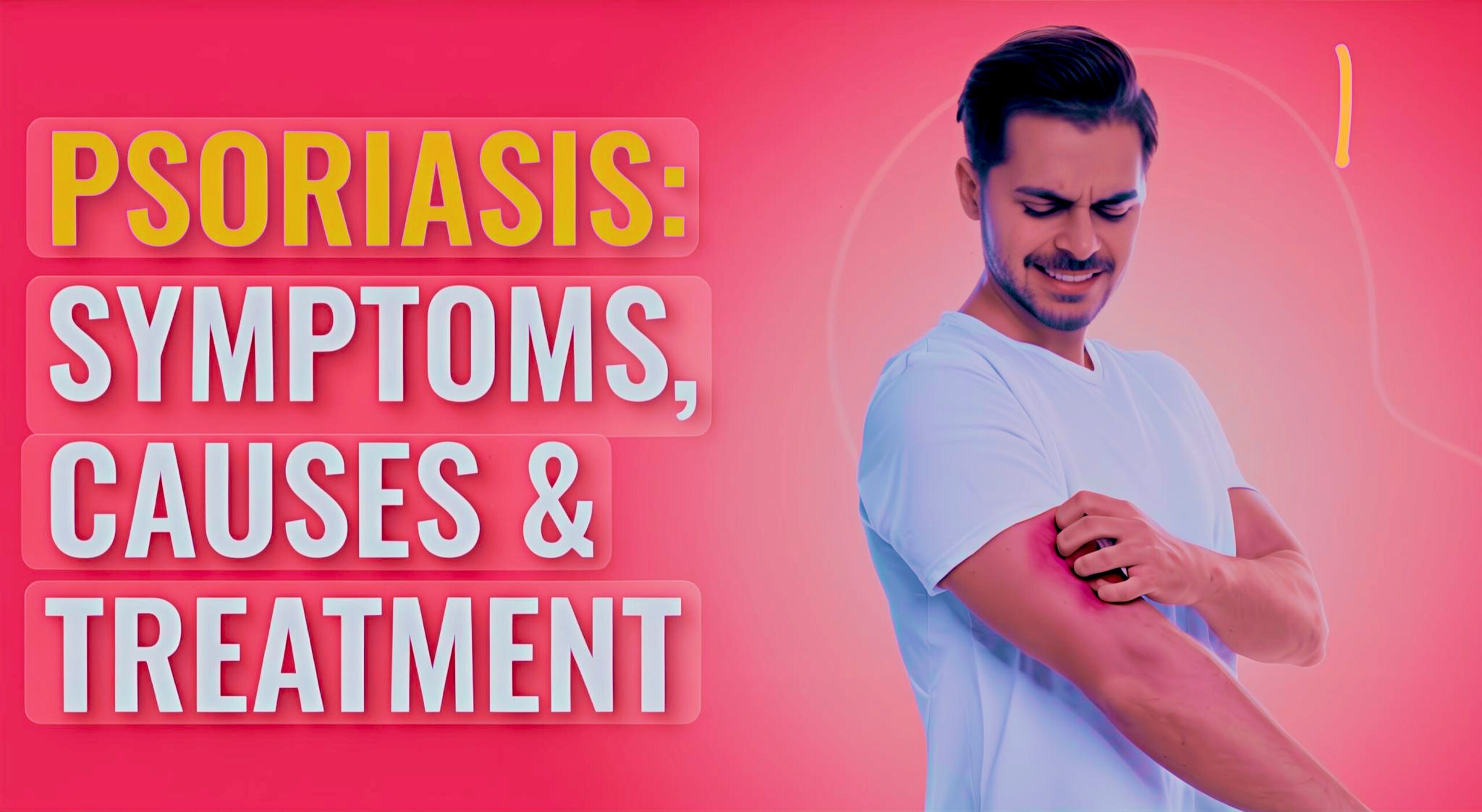Psoriasis is a chronic autoimmune skin condition that affects millions of people worldwide. Characterized by red, scaly patches, it can cause discomfort, itching, and even emotional distress. Despite being a common condition, many misconceptions surround psoriasis. We’ll explore its causes, symptoms, and the most effective treatments available today.
What Is Psoriasis?
Psoriasis occurs when the immune system mistakenly attacks healthy skin cells, speeding up their production cycle. Normally, skin cells regenerate every 28-30 days, but in psoriasis, this process happens in just 3-4 days. The rapid buildup of cells leads to thick, scaly patches known as plaques.

Types of Psoriasis
There are several types of psoriasis, each with distinct characteristics:
- Plaque Psoriasis – The most common form, appearing as raised, red patches covered with silvery scales.
- Guttate Psoriasis – Small, dot-like lesions often triggered by bacterial infections like strep throat.
- Inverse Psoriasis – Smooth, red patches in skin folds (armpits, groin, under breasts).
- Pustular Psoriasis – White, pus-filled blisters surrounded by red skin.
- Erythrodermic Psoriasis – A severe, life-threatening form causing widespread redness and shedding of skin.
What Causes Psoriasis?
While the exact cause remains unknown, research suggests a combination of genetic and environmental factors:
- Genetics – About 30% of people with psoriasis have a family history.
- Immune System Dysfunction – Overactive T-cells trigger inflammation and rapid skin cell growth.
- Triggers – Stress, infections (like strep throat), skin injuries, smoking, alcohol, and certain medications can worsen symptoms.
Common Symptoms of Psoriasis
Symptoms vary depending on the type but often include:
- Red, inflamed patches with thick, silvery scales
- Dry, cracked skin that may bleed
- Itching, burning, or soreness
- Thickened or pitted nails
- Swollen or stiff joints (in psoriatic arthritis)
Effective Psoriasis Treatments
While there’s no cure, several treatments can manage symptoms and improve quality of life:
1. Topical Treatments
- Corticosteroids – Reduce inflammation and itching.
- Vitamin D analogs – Slow skin cell growth.
- Retinoids – Help normalize skin cell production.
- Moisturizers – Prevent dryness and cracking.
2. Phototherapy (Light Therapy)
- UVB Therapy – Uses ultraviolet B light to slow skin cell turnover.
- PUVA Therapy – Combines UVA light with a photosensitizing drug.
3. Systemic Medications
For moderate to severe cases, doctors may prescribe:
- Methotrexate – Suppresses the immune system.
- Cyclosporine – Reduces immune response.
- Biologics – Target specific immune proteins (e.g., TNF-alpha inhibitors).
4. Lifestyle and Home Remedies
- Avoid triggers (stress, smoking, alcohol).
- Eat an anti-inflammatory diet (rich in omega-3s, fruits, vegetables).
- Keep skin moisturized with fragrance-free lotions.
- Practice stress management (yoga, meditation).
Living with Psoriasis: Emotional and Mental Health Impact
Psoriasis isn’t just a skin condition—it can affect mental health, leading to anxiety, depression, and low self-esteem. Support groups, therapy, and open conversations with loved ones can help manage emotional challenges.
Final Thoughts
Psoriasis is a lifelong condition, but with the right treatment plan, symptoms can be controlled effectively. If you suspect you have psoriasis, consult a dermatologist for a personalized approach. Remember, you’re not alone—millions are navigating this journey with you.
Have questions or personal experiences with psoriasis? Share them in the comments below!
